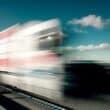
The Cope family of Loughgall is one of the most prominent and influential families to have ever lived in the County Armagh village, who at the height of their dynasty, owned 9,367 acres of land.
The family’s roots in Loughgall date back to the early 17th century when Sir Anthony Cope, an English politician and landowner, was granted lands following the Plantation of Ulster in the early 1600s.
The foundation of the family’s power and influence in the area was laid with the construction of the Drumilly House and Loughgall Manor, the family’s homes for over 300 years. The former (pictured) was demolished in 1966.
Over the centuries, the Cope family played a vital role in shaping the social, economic, and political history of the village of Loughgall and the wider County Armagh area.
The family’s wealth and power allowed them to acquire extensive property holdings throughout the region, including significant land around Loughgall village.
The Cope family were also known for their involvement in politics, religion, and the arts, with family members holding several high-ranking positions in the local government, including that of High Sheriff of County Armagh.
Sir Anthony Cope, who educated at Trinity College, Dublin, and was Rector of Tartaraghan Parish from 1739 until his death in April 1764, also served as Dean of Armagh from 1753.
With close connections to the Church of Ireland several other members of the family served as bishops in the Diocese of Armagh.
One of the most significant contributions the Cope family made to the village was the establishment of the Loughgall Agricultural Society in the early 1800s.
The society aimed to improve the quality of farming in the area by providing farmers with access to the latest agricultural technology and techniques. The society also held an annual agricultural show, which became one of the most important events in the village’s social calendar.
The Cope family were strong supporters of the arts, and they played an important role in the development of the local music scene.
The family was instrumental in the establishment of Loughgall Brass Band, which was founded in the mid-1800s and quickly became one of the most renowned bands in Northern Ireland.
The family’s influence in the area began to decline towards the end of the 19th century, as several members of the family emigrated to other parts of the world, and the family’s wealth and power dwindled.
Nevertheless, the Cope family continued to contribute to the village’s development throughout the 20th century, and their legacy can still be seen in the village today.
There are currently no pubs in the village now thanks to the endeavours of Mrs Cecilia Cope who, like many ladies in Victorian times, was a fervent advocate of temperance. Cecilia Cope purchased the license’s of the publicans in the village and instead offered an alternative named the ‘Rock Coffee Tavern’, which opened in July 1879.
An advert in the Belfast News Letter dated 1879 described the building as ‘a most comfortable and suitable building. There is a good reading room which is amply supplied with daily, weekly, and temperance newspapers, periodicals, etc
One significant part of the family’s legacy in the village is the Cope Memorial Hall, which was built in 1928 and named in honour of the family’s contributions to the local community. The hall has been a vital part of village life ever since, hosting a wide range of cultural and social events.
Despite the passing of time, the Cope family’s influence on Loughgall has not been forgotten. The family’s name is still synonymous with the village, and their contributions to the local community continue to be celebrated and remembered.
One of the most visible reminders of the family’s presence in Loughgall is Loughgall Country Park, which was once part of the Cope family’s estate. Today, the park is a popular destination for visitors to the area, offering stunning views of the surrounding countryside and a wide range of recreational activities.
The grounds of the Manor House is now run as Loughgall Country Park, a rural haven of relaxation and recreation boasting an 18-hold golf course adjoined by considerable areas of mature woodland interspersed with orchards and cultivated fields.
The most popular walk in the park being the ‘Lime walk’ – a pathway close to the entrance of the main house lined with lime trees.
The Cope family of Loughgall played a vital role in shaping the history and development of the village and the wider County Armagh area. The family’s wealth and power allowed them to acquire significant property holdings in the region, and their contributions to politics, religion, and the arts were significant.
Although the family’s influence in the area declined towards the end of the 19th century, their legacy can still be seen in the village today, in the form of Loughgall Country Park, the Cope Memorial Hall, and the many other contributions the family made to the local community over the centuries.





